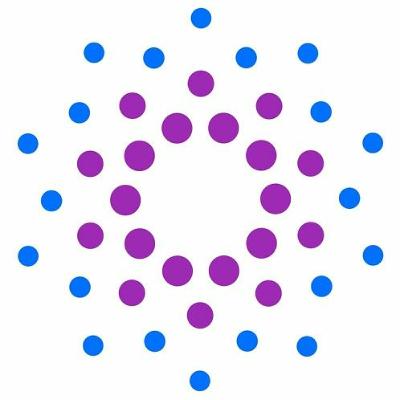Discover Nurse & Midwife Support Podcast
Nurse & Midwife Support Podcast

Nurse & Midwife Support Podcast
Author: Nurse & Midwife Support
Subscribed: 72Played: 588Subscribe
Share
© All rights reserved
Description
Nurse & Midwife Support offers national support services to nurses, midwives and students of the profession, 24 hours, 7 days a week -- because your health matters. Our podcasts hosts Australian nurses and midwives to discuss all the topics that matter most to our community.
46 Episodes
Reverse
Author and social worker Mary Freer has devoted her career to transforming our understanding of compassion as the CEO and Founder of Compassion Revolution. She joined midwife Celeste Pinney on the Nurse & Midwife Support podcast to discuss the importance of self-compassion and how it can help to carry nurses and midwives through post-traumatic experiences.
Dr Finbar Hopkins is an experienced Wellbeing Consultant who delivers a suite of education and training programs to help a large Melbourne hospital improve the physical and emotional health of their staff. She is a registered nurse, mental health nurse and midwife who is using the wisdom she has gained from 30 years of experience to improve the health and wellbeing of healthcare workers.
She joined the Nurse & Midwife Support podcast to discuss why it’s imperative that employers and colleagues provide trauma-informed care to nurses and midwives who are vulnerable to occupational post-traumatic stress and post-traumatic stress disorder (PTSD).
https://www.nmsupport.org.au/news/podcast-baggarrook-midwifery-aunty-gina-bundle-and-alexandrea-burton
Aboriginal Liaison Officer Aunty Gina Bundle, a Djiringanj, Walbunja woman and midwife Alexandrea Burton, a Waradjuri woman join the podcast to discuss how the Baggarrook midwifery service at The Royal Women’s Hospital is improving Culturally Safe care for First Nations patients and colleagues.
Aunty Gina explains why programs like Baggarrook are so crucial to improving outcomes for Aboriginal and Torres Strait mothers and babies:
“Like any other organisation, public or government, you get that ‘Them blackfellas, here they go again ....’ It's not about that. It's about providing a service to community, communities that never used to have these services. 20 years is relatively new, having a KMS [Koori Maternity Service]. But to have a Baggarrook caseload within a public hospital is even newer, and creating these services for Aboriginal people. Historically, we've created them because we didn't have them. We weren't allowed to have them, or it was really hard to get them. So we created our own.”
Learn more about this award-winning midwifery program: Woman’s Journey: Baggarrook Yurrongi, Nurragh Manma Buliana.
Aunty Gina was recently awarded a Medal of the Order of Australia in recognition of her service to Victoria’s Indigenous community. We thank her for her dedication to improving care for First Nations patients and workers!
This podcast is part of our special NAIDOC week newsletter, Edition 21 — Supporting Aboriginal and Torres Strait Islander nurses and midwives. https://www.nmsupport.org.au/resources/newsletter/21
The newsletter also features podcasts with the first Aboriginal Nurse Practitioner Lesley Salem and CATSINaM CEO Dr Ali Drummond.
https://www.nmsupport.org.au/news/podcast-lesley-salem-first-aboriginal-nurse-practitioner
https://www.nmsupport.org.au/news/podcast-cultural-safety-dr-ali-drummond
If you need to talk, Nurse & Midwife Support is here to support you: 1800 667 877 or by email.
https://www.nmsupport.org.au/support
https://www.nmsupport.org.au/news/podcast-cultural-safety-dr-ali-drummond
Dr Ali Drummond is the new CEO of the Congress of Aboriginal and Torres Strait Islander Nurses and Midwives (CATSINaM). https://catsinam.org.au/our-ceo/
He is a Meriam and Erubam man of Zenadh Kes (Torres Straits) and Wuthathi man from Far North Queensland. Dr Drummond joins us on the podcast to share his experiences as a nurse and academic, and why it’s so important to embed Cultural Safety and Cultural Humility training in academia and education.
Dr Drummond says:
“Understanding when Aboriginal and Torres Strait Islander people in (the workplace) are being disempowered, are being treated like crap for no other reason but for them being Indigenous, that is very challenging. I think nurses and midwives can better support Aboriginal and Torres Strait Islander nurses, midwives and students by doing training like Murra Mullingari, to understand cultural safety. Understand those different manifestations of racism. Learn in other programs, you learn language to address these things. It's far safer for a non-Indigenous nurse, midwife or student to actually step up and say, "Actually, that's inappropriate." This is why. Don't expect the Aboriginal person or the person who's being targeted with this racism to do it themselves. That's an important role.
I think [the role that] nurses and midwives can play is stepping up.”
When we recorded this podcast, Dr Drummond was Acting CEO of CATSINaM, but he has recently been permanently appointed to the role. Congratulations Dr Drummond, and thank you for joining us to share your expertise!
This podcast is part of our special NAIDOC week newsletter, Edition 21 — Supporting Aboriginal and Torres Strait Islander nurses and midwives. https://www.nmsupport.org.au/resources/newsletter/21
The newsletter also features podcasts with Lesley Salem, the first Aboriginal Nurse Practitioner, and Aunty Gina Bundle and Alexandrea Burton of the Baggarrook midwifery program.
https://www.nmsupport.org.au/news/podcast-lesley-salem-first-aboriginal-nurse-practitioner
https://www.nmsupport.org.au/news/podcast-baggarrook-midwifery-aunty-gina-bundle-and-alexandrea-burton
If you’re challenged by issues related to Cultural Safety and need to talk, Nurse & Midwife Support is here to support you: 1800 667 877 or by email. https://www.nmsupport.org.au/support
https://www.nmsupport.org.au/news/podcast-lesley-salem-first-aboriginal-nurse-practitioner
Wonnarua woman Lesley Salem was the first Aboriginal Nurse Practitioner. She has dedicated her career to improving care for people experiencing chronic illness in rural and remote communities. She joined us on the podcast to share her story and the insights earned from her experiences, including her passion for diverse forms of education and the importance of mentoring the next generation of First Nations healthcare workers.
Lesley tells us:
“It starts with the growth of our students as undergraduates. It's the growth that [comes from] believing in what you can do. I thank God that I did Oral Vivas, because I've got mild adult dyslexia, and I can't write for crap. Any book I've published, you'll see another name there with me. It's usually my best friend, Barb Harvey, who takes me through every paragraph and says, "What are you trying to say here?"
But we need encouragement. As long as our universities or Western models were oral ... I could have given 50,000 words without a problem. I could have had my notes in front of me and referenced any talk that I give along the way. I don't know what it is, but I can't get it from my head to paper. There's no consideration for anyone with learning difficulties or anything. So a lot of our good nurses, who don't have that ability to write, feel that they're left out and leave. New ways of learning, bringing back Oral Vivas, letting somebody talk or show what they can do.
A lot of our Aboriginal nurses will feel left out, particularly from our rural and remote areas, because universities do nothing to embrace a different way of learning. I was lucky in country hospitals, there was an Oral Viva for everything. I barely passed any written thing, but we were so lucky, every PTS stage, everything up, we had to do an Oral Viva. Thank God, because I could talk.”
Thank you Lesley for joining us and sharing your knowledge. If you’d like to keep up with Lesley or look at her beautiful artwork, you can check out her website. https://www.lesleysalem.com.au/
This podcast is part of our special NAIDOC week newsletter, Edition 21 — Supporting Aboriginal and Torres Strait Islander nurses and midwives. https://www.nmsupport.org.au/resources/newsletter/21
The newsletter also features podcasts with CATSINaM CEO Dr Ali Drummond and Aunty Gina Bundle and Alexandrea Burton of the Baggarrook midwifery program.
https://www.nmsupport.org.au/news/podcast-cultural-safety-dr-ali-drummond
https://www.nmsupport.org.au/news/podcast-baggarrook-midwifery-aunty-gina-bundle-and-alexandrea-burton
If you’re struggling and need to talk, Nurse & Midwife Support is here to support you: 1800 667 877 or by email. https://www.nmsupport.org.au/support
View the podcast transcript: https://www.nmsupport.org.au/news/podcast-Burnout-in-nursing-and-midwifery
Registered psychologist, coach and author Sharee Johnson talks burnout in this podcast episode with new co-host Celeste Pinney. Sharee shares the wisdom of many years of experience working with doctors who have lived through burnout. Sharee offers insights and practical strategies for nurses and midwives to improve health and wellbeing and prevent or recover from burnout.
Sharee explains the importance of understanding burnout as both an individual and organisational experience:
"The very first, and most important thing, that everybody needs to hear is that burnout is not a mental illness, it's not something wrong with the individual. It's a mismatch or a relationship difficulty, if you like, between the individual and their workplace…
When we're thinking about burnout, we do want to think about individual responsibility. It is about how you cope, how you ask for what you need, and how you develop support networks around yourself. We often talk in the work we do about having an internal scaffold and an external scaffold, both of which help hold you up, if you like. But we need to think about those individual skills of asking for help, regulating ourselves, being able to manage our mind effectively, having enough sleep, all of these things.
(But) even if we do all of those things beautifully, if the workplace is toxic or dysfunctional, then it won't matter how skilled we are as individuals, the workplace is still problematic. So we need to use a both/and lens when we're talking about burnout."
Listen to find out more about how you can identify if and why you may be experiencing symptoms of burnout, how to get the right support, and how we can gradually begin to create habits to shift our state and find our way back to wellbeing.
If you’re dealing with burnout, Nurse & Midwife Support is here to support you: 1800 667 877 or by email: https://www.nmsupport.org.au/support
Check out the rest of this newsletter: https://www.nmsupport.org.au/resources/newsletter/20
https://www.nmsupport.org.au/news/podcast-your-financial-wellbeing-matters
In 2022 Beyond Blue released research showing that financial challenges and mental health problems are common issues that frequently go hand-in-hand. Find out more in the report: Money and Mental Health.
There is substantial evidence that financial wellbeing and mental health are linked. Analysis of HILDA data shows 14% of Australian adults experienced both financial hardship and mental health symptoms at any time over the five years from 2014 to 2019. Recent economic disruption such as rising rent, interest rates and cost of living has led to many Australians feeling increasing levels of financial stress and elevated risk to mental health.
At Nurse & Midwife Support, we’re committed to supporting your health and wellbeing, but we’re not financial experts and providing financial support is not our core business. However, we often hear from nurses, midwives and students who are experiencing financial anxiety.
When a registered midwife, Sophie, reached out to let us know about her journey to improve her financial wellbeing, we saw an opportunity to invite her and her financial coaching team onto the podcast to discuss financial management for healthcare workers such as nurses and midwives.
Sophie was able to turn her financial wellbeing around by seeking the financial advice of experts, and wanted to share what she has learned with our listeners. Sophie and Wealth Health Co’s Ben and Steve share practical information about what to consider when you are planning your financial future, why it’s important to have goals, a plan and active engagement in pursuing financial wellbeing. We also discuss what to do if you experience financial difficulties.
Ben has also written two blogs to support your financial wellbeing:
> A financial advisor’s tips to support your financial wellbeing at any life stage https://www.nmsupport.org.au/news/financial-advisor-tips
> Your financial wellbeing matters: 4 tips to build a financial foundation https://www.nmsupport.org.au/news/tips-build-financial-foundation
It may be that you are already an exceptional manager of your finances and have some tips to share with fellow nurses and midwives. We would love to hear from you. Email us at mark@nmsupport.org.au.
We hope this podcast and blogs are useful. We know your financial wellbeing matters. If your mental health has been affected by your financial situation, please reach out to Nurse & Midwife Support. Call us 24/7 on 1800 667 877 or email us.
View the transcript: https://www.nmsupport.org.au/news/podcast-graduate-coordinators-advice-new-grads-joanne-purdue
NSWNMA Senior Professional Officer Joanne Purdue was a whole hospital nurse educator and ran a new graduate program for eight years. She is still passionate about supporting new graduates to flourish in their chosen career. Joanne joins the Nurse & Midwife Support Podcast to discuss what she’s learned about supporting grads and to offer advice and resources to new nurses and midwives preparing for their graduate year.
Joanne tells us that being prepared for the year is vital to your success, as is seeking support when you need it. She also wants grads to know that despite the stress, nursing and midwifery are wonderful professions:
“Even if it's challenging at times, you do make a remarkable difference in people's lives when they're at their most vulnerable. So be proud of yourself, and proud of what you've achieved because you're the future of our workforce, and you're important, don't ever think that you're not.”
Listen to the episode for more wisdom on how to thrive in your grad year. You can also check out Episode 38: Stories of the graduate year with Francis and Robyn, recent grads who joined us to share their experiences and what they’ve learned. https://www.nmsupport.org.au/news/podcast-stories-graduate-year-francis-and-robyn
Nurse & Midwife Support is here to support you: 1800 667 877 or by email. https://www.nmsupport.org.au/support
Your graduate year matters!
View the transcript: https://www.nmsupport.org.au/news/podcast-stories-graduate-year-francis-and-robyn
Mark and special guest co-host Celeste Pinney talk to Francis and Robyn, inspirational recent graduates who fearlessly share their stories of the highs and lows of their grad year. They share their vulnerabilities and offer tips to support other graduates.
We’re not using Francis and Robyn’s last names to protect their privacy.
Robyn discusses the importance of support mechanisms so you can debrief, reflect, and recognise what you need:
“Asking people if they have room for you, if they can hold the space for you to have that deep chat about whatever was going on during a shift or how the whole week was...
Allow yourself to feel your emotions. Your feelings are valid. What you're going through is valid. You're not the only one experiencing it. Try and find if you can. Try and speak up. Talk to your other peers, your fellow grads, and just ask if anyone else is feeling the same way. Because when you find someone that is feeling the same way, it can make you feel not so alone in the emotions you're going through and the experiences that you're having at that time.”
Francis encourages graduates to make the most of your graduate year, to learn as much as you can and enjoy it. He advises to try and let go of your fear and trust in the process.
Francis acknowledges that stressors and difficult times will be inevitable but focus on the pleasure and joy of learning, making connections and setting up your career.
For more tips you can also check out the next episode, Episode 39: A Graduate Coordinator’s advice for new grads with Joanne Purdue. https://www.nmsupport.org.au/news/podcast-graduate-coordinators-advice-new-grads-joanne-purdue
You can also check out our resources for students and graduates. https://www.nmsupport.org.au/students-and-graduates
Support is available. Nurse & Midwife Support is here to talk to you — free, confidential, and 24/7 on 1800 667 877 or by email. https://www.nmsupport.org.au/support
Your graduate year matters!
Our Summer Newsletter is all about supporting culturally and linguistically diverse (CALD) nurses, midwives and students. We’ve partnered with the New South Wales Nurse & Midwives Association (NSWNMA) to offer you two podcasts with six passionate nurses committed to empowering CALD nurses and midwives. This is the second of two episodes, Episode 37.
In this episode we speak to four members of the NSWNMA CALD reference group. Julie, Merilyn, Bukwa and Marty share their lived experiences and the importance of addressing racism in the nursing and midwifery professions.
Our guests candidly discuss the harmful effects of racism, the benefits of being part of the CALD reference group and their motivations for putting discrimination under a spotlight.
It is a privilege to hear from passionate nurses who use their voices to highlight the issues, challenges and the pernicious impact of discrimination and racism. We thank our guests for sharing their insights and identifying opportunities to address racism in the workplace.
As Marty says on the podcast:
“Let’s use our voices so that our future (CALD members) don’t have to use theirs.”
You can also check out Episode 36: Addressing the Cultural Safety Gap with Catherine and Helen, where we discuss the findings of an NSWNMA survey on the wellbeing of CALD nurses and midwives and how the CALD reference group was formed in response.
If you need to chat about any of the issues raised in this podcast, we’re here 24/7 on 1800 667 877, or you can email us: https://www.nmsupport.org.au/support.
Our Summer Newsletter is all about supporting culturally and linguistically diverse (CALD) nurses, midwives and students. We’ve partnered with the New South Wales Nurse & Midwives Association (NSWNMA) to offer you two podcasts with six passionate nurses committed to empowering CALD nurses and midwives. This is the first of two episodes, Episode 36.
In this episode of the Your Health Matters podcast we speak to nurses Helen Macukewicz and Catherine Ivanfy, NSWNMA Professional Officers who coordinate the organisation’s CALD reference group, which advocates for culturally and linguistically diverse nurses and midwives on a range of issues.
In 2019 the NSWNMA released the Cultural Safety Gap report (https://www.nswnma.asn.au/wp-content/uploads/2019/09/CaLD-Report-FINAL-lr.pdf)based on a survey of the experiences of CALD nurses and midwives working in NSW. We discuss the survey’s important findings, the subsequent formation of the CALD Reference Group, and how you can get involved to tackle this problem by starting or joining a CALD support group in your workplace. You can also participate in the Australian Human Rights Commission’s Racism: It Stops with Me campaign, which the NSWNMA also supports: https://www.nswnma.asn.au/safer-work-safer-care/racism-it-stops-with-me/
Helen and Catherine are committed advocates for fairer, more equitable and safer workplaces. We’re grateful they joined us to share their insights and help us all work towards Cultural Safety in our workforce.
You can also check out Episode 37 where we discuss the lived experiences of four members of the NSWNMA CALD Reference group: Podcast: Calling Racism Out with Julie, Merilyn, Bukwa and Marty.
If you need to chat about any of the issues raised in this podcast, we’re here 24/7 on 1800 667 877, or you can email us: https://www.nmsupport.org.au/support
We are delighted to introduce the winner of our story competition celebrating midwifery friendships. Competition winner and registered nurse Leanne O’Connor joins us on the podcast to discuss her friendship with fellow midwife Rowena and share her winning story.
We are delighted to introduce the winner of our story competition celebrating nursing friendships. Competition winner and registered nurse Melinda Jesudason joins us on the podcast to discuss her friendship with fellow nurse Hester and share her winning poem.
Understanding professional boundaries is vital for nurses and midwives to practise safely and adhere to our registration requirements and protect ourselves and the public from harm. Unfortunately, asserting professional boundaries isn’t always easy.
At Nurse & Midwife Support we often hear from nurses and midwives that navigating professional boundaries can be complex. We support nurses and midwives impacted by boundary transgressions or with questions about boundary management. We know that managing professional boundaries may not always be black and white and we are here to support you.
The Nursing and Midwifery Board of Australia (NMBA) also recognise that managing professional boundaries can sometimes be difficult, particularly identifying and differentiating the boundaries between professional relationships and personal relationships. That’s why they provide guidance on professional boundaries in the respective Code of conduct that aim to protect the community by helping to prevent distress, confusion, harm, or abuse of people being cared for by nurses and midwives.
But professional boundaries aren’t just important for protecting the people we care for — they’re vital for protecting clinicians too. Understanding professional boundaries is important for your professional wellbeing. That’s why we asked Dr Wendy McIntosh to join us on the Your Health Matters podcast to provide you with the facts, information, resources, and support you need to confidently assert your own boundaries.
Wendy has spent many years studying professional boundaries. She has 30 years’ experience as a registered nurse in clinical, education and research settings, including twenty-five years in mental health. She takes a special interest in professional supervision, professional boundaries, professional identity, links between childhood trauma and mental illness and workplace bullying. We are so grateful that Wendy has joined us to explain what she has learned about professional boundaries and how they will support your professional health and wellbeing.
That’s enough now
Wendy has also written a blog for us on the topic: “That’s enough now”— professional boundaries fortify self-care.
She writes:
“That's enough now” is a phrase I developed while supporting professionals to identify and address factors that led to their boundary transgressions. “That's enough taking work home”, “that's enough workplace bullying”, “that's enough working long hours”, “that's enough unpaid overtime”. That's enough now.
Wendy believes “That's enough now” is a crucial phrase to help nurses and midwives create and reinforce boundaries, and that we should start practicing it at the undergraduate level. Check out the blog to learn more about how you can practice saying “That’s enough now.”
Talk to us about it
Professional boundaries matter! If you need help figuring out how to build and maintain your boundaries, we’re here to chat about it. Give us a call on 1800 667 877.
https://www.nmsupport.org.au/news/podcast-asserting-professional-boundaries-dr-wendy-mcintosh
The mental health of nurses, midwives and students is vitally important. In this episode of the podcast we welcome our first ever co-host Tessa Moriarty and discuss insights and experiences on mental health for working nurses and midwives with Registered Midwife Georgie Southam and Registered Nurse Kat Evans.
We discuss the unique challenges and factors that impact workers in the healthcare industry. Working on the frontline during the ongoing pandemic has led to prolonged levels of unhealthy stress, anxiety, depression, burnout, and post-traumatic stress disorder in our workforce. Our guests share tips and tricks to improve your mental health and access support.
We urge you to remind yourself every day that your health matters as much as the health of those you care for. We hope you know how important your mental health is. If you ever need to chat Nurse & Midwife Support are here for you. Give us a call on 1800 667 877 — free, confidential, 24/7.
https://www.nmsupport.org.au/news/podcast-mental-health-tessa-moriarty-georgie-southam-and-kat-evans
Have you started 2022 feeling you are in survival mode? Was your longed-for leave cancelled? Are you working too many hours? Are you — like many — sapped of energy, depleted, and running on empty? Do you feel cooked?
You are not alone. Unfortunately, this is exactly how many nurses and midwives feel.
This podcast may help you to shift gears, refocus on your own health and make intentional changes to move into thrive mode!
Two years into this brutal pandemic, many nurses and midwives are exhausted, fatigued and wondering how much they have left in their energy tank. We are concerned about the impact on the health of nurses and midwives. We’ve recorded this podcast to offer you support, health tips and hope.
Two years ago, we spoke to Sam Eddy, Mental Health First Aider, experienced workplace coach and educator on Episode 15 of the podcast. We discussed stress management in times of crisis. That was in the early months of the pandemic and now feels like a lifetime ago.
Given the popularity of the episode we asked Sam back to offer his support and tell us about his new training program From Survive to Thrive, a 12 week program developed with Mental Health Nurse Sarah. This is a self-paced online study program filled with emerging scientific concepts to empower you with the knowledge and skills to move beyond merely surviving and into thriving in your career, home life and for your mental and physical health.
We discuss the importance of listening to your body and mind and taking affirmative action to provide refocus and attention to your health and wellbeing because YOUR HEALTH MATTERS!
We often hear from nurses and midwives that they feel drained and don’t know how to refuel. The tips in this podcast aim to assist you to top your energy levels, refocus your health, establish boundaries that support your wellbeing and work towards thriving in 2022.
We hope this podcast supports you to take a moment to reconnect with your health and wellbeing and make it a priority. If you’d like to talk, take a minute to reach out for support — give Nurse & Midwife Support a call on 1800 667 877.
Your health REALLY does matter!
Mark Aitken RN
WARNING:
This issue deals with sensitive issues including problems related to substance use. This is a complex and sensitive area and may be triggering for some, difficult for others and result in strong emotions. If this topic raises issues for you, now may not be the right time for you to read it. Give us a call on Nurse & Midwife Support on 1800 667 877 if you would like to talk about what you are feeling.
For many nurses and midwives, talking about problems related to substance use can be challenging, anxiety provoking and evoke complex feelings including fear, shame, and stigma. Many do not know where to start to access support.
We thought you may need a helping hand if you are struggling with this issue yourself or supporting someone who is struggling.
On this episode of the Your Health Matters podcast we speak to Registered Nurse Dr Adam Searby, lecturer at the School of Nursing and Midwifery, Faculty of Health, Deakin University and president of Drug and Alcohol Nurses of Australasia (DANA).
We discuss the complexity of substance dependency, its impact on nurses and midwives and the range of emotions it evokes.
The COVID-19 pandemic feels like a marathon. Many nurses and midwives have been racing against this pandemic since March 2020. We all want it to end. If you are feeling fatigued and exhausted by the impact of COVID-19, you are not alone. Chances are you feel like you haven’t had time to pause and catch your breath.
We hear from nurses and midwives that they feel drained and don’t know how to refuel.
We thought you may need a helping hand. On this episode of The Your Health Matters podcast we speak to Marie Louise and Kerrie Otto de Grancy, from the Evolve Yourself Institute (EYI) about the importance of your health, wellbeing and self-care and the impact of not doing so during challenging times.
EYI is committed to supporting nurses and midwives to get their life on track with self-care practices and processes. They share some breathing and mindfulness activities to incorporate into your day and fortify yourself against chronic stress.
Many nurses and midwives feel exhausted and often overwhelmed by the response required over the prolonged response required of them during the pandemic. It is vital to your wellbeing that you set time aside each day, even if it is 5 minutes, to give yourself self-care and take a moment to do something that allows you to pause, breathe, be still and start to recover.
We hope this podcast supports you to pause, take a breath and focus on your health and wellbeing. If you’d like to talk, take a minute to reach out for support — give Nurse & Midwife Support a call on 1800 667 877.
Your health REALLY does matter!
Mark Aitken RN
On this episode of the Nurse & Midwife Support Your Health Matters podcast we speak to Jay Court about This Way Up, a digital program to support the mental health of nurses, midwives, and students.
Jay Court is the Digital Mental Health Engagement Lead for This Way Up at the Clinical Research Unit for Anxiety and Depression (CRUfAD), St Vincent's Hospital Sydney. Jay has dual backgrounds in mental health nursing and communications.
Jay discusses the importance of nurses and midwives taking care of their mental health, some of the challenges and barriers to this and how online digital mental health support removes access problems.
This Way Up provides evidence-based programs and resources developed and run by clinical psychologists, psychiatrists, researchers, and web technicians based at the Clinical Research Unit for Anxiety and Depression (CRUfAD) — a joint facility of St Vincent’s Hospital and the University of New South Wales.
The This Way Up program and resources are based on iCBT, which is internet-based cognitive behaviour therapy. Jay discusses the This Way Up programs and how a nurse or midwife experiencing a mental health concern can access them. This Way Up offers specialised resources to support you during the pandemic, including five simple steps to calm your emotions, and tips for getting through.
In this episode we talk about the importance of accessing support. I hope you find this our discussion informative and useful. Look after yourself and each other Your Health Matters.
Mark Aitken RN
Stakeholder Engagement Manager
Nurse & Midwife Support
In this episode we talk to Julie Sharrock, an experienced registered nurse and clinical supervisor about the importance of clinical supervision. We explore the benefits and why professional self-care as an essential form of support for nurses and midwives.
Clinical supervision is a formal process that aids supported reflection. It is one tool underutilised by nurses and midwives to provide support. Julie explains how the process helps nurses and midwives to develop their practice through regular time spent in reflective discussion with experienced and knowledgeable colleagues trained in providing clinical supervision — you won’t want to miss Julie drawing a parallel between clinical supervision and the Pensieve in Harry Potter! It’s the first time the wisdom of a Harry Potter character has made it to the Your Health Matters podcast, and we hope it won’t be the last time!
The magic of support matters!
Mark Aitken
Stakeholder Engagement Manager









